第163章
The policeman began, with his thick, trembling fingers, clumsily to untie the tapes that fastened the shirt round the red, sinewy neck. He was evidently excited and confused, but still thought it necessary to address the crowd.
"What have you collected here for? It is hot enough without your keeping the wind off."
"They should have been examined by a doctor, and the weak ones left behind," said the clerk, showing off his knowledge of the law.
The policeman, having undone the tapes of the shirt, rose and looked round.
"Move on, I tell you. It is not your business, is it? What's there to stare at?" he said, and turned to Nekhludoff for sympathy, but not finding any in his face he turned to the convoy soldier.
But the soldier stood aside, examining the trodden-down heel of his boot, and was quite indifferent to the policeman's perplexity.
"Those whose business it is don't care. Is it right to do men to death like this? A convict is a convict, but still he is a man," different voices were heard saying in the crowd.
"Put his head up higher, and give him some water," said Nekhludoff.
"Water has been sent for," said the policeman, and taking the prisoner under the arms he with difficulty pulled his body a little higher up.
"What's this gathering here?" said a decided, authoritative voice, and a police officer, with a wonderfully clean, shiny blouse, and still more shiny top-boots, came up to the assembled crowd.
"Move on. No standing about here," he shouted to the crowd, before he knew what had attracted it.
When he came near and saw the dying convict, he made a sign of approval with his head, just as if he had quite expected it, and, turning to the policeman, said, "How is this?"
The policeman said that, as a gang of prisoners was passing, one of the convicts had fallen down, and the convoy officer had ordered him to be left behind.
"Well, that's all right. He must be taken to the police station.
Call an isvostchik."
"A porter has gone for one," said the policeman, with his fingers raised to his cap.
The shopman began something about the heat.
"Is it your business, eh? Move on," said the police officer, and looked so severely at him that the clerk was silenced.
"He ought to have a little water," said Nekhludoff. The police officer looked severely at Nekhludoff also, but said nothing.
When the porter brought a mug full of water, he told the policeman to offer some to the convict. The policeman raised the drooping head, and tried to pour a little water down the mouth; but the prisoner could not swallow it, and it ran down his beard, wetting his jacket and his coarse, dirty linen shirt.
"Pour it on his head," ordered the officer; and the policeman took off the pancake-shaped cap and poured the water over the red curls and bald part of the prisoner's head. His eyes opened wide as if in fear, but his position remained unchanged.
Streams of dirt trickled down his dusty face, but the mouth continued to gasp in the same regular way, and his whole body shook.
"And what's this? Take this one," said the police officer, pointing to Nekhludoff's isvostchik. "You, there, drive up.
"I am engaged," said the isvostchik, dismally, and without looking up.
"It is my isvostchik; but take him. I will pay you," said Nekhludoff, turning to the isvostchik.
"Well, what are you waiting for?" shouted the officer. "Catch hold."
The policeman, the porter, and the convoy soldier lifted the dying man and carried him to the trap, and put him on the seat.
But he could not sit up; his head fell back, and the whole of his body glided off the seat.
"Make him lie down," ordered the officer.
"It's all right, your honour; I'll manage him like this," said the policeman, sitting down by the dying man, and clasping his strong, right arm round the body under the arms. The convoy soldier lifted the stockingless feet, in prison shoes, and put them into the trap.
The police officer looked around, and noticing the pancake-shaped hat of the convict lifted it up and put it on the wet, drooping head.
"Go on," he ordered.
The isvostchik looked angrily round, shook his head, and, accompanied by the convoy soldier, drove back to the police station. The policeman, sitting beside the convict, kept dragging up the body that was continually sliding down from the seat, while the head swung from side to side.
The convoy soldier, who was walking by the side of the trap, kept putting the legs in their place. Nekhludoff followed the trap.